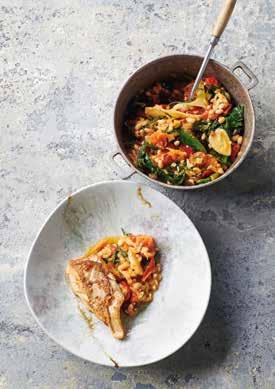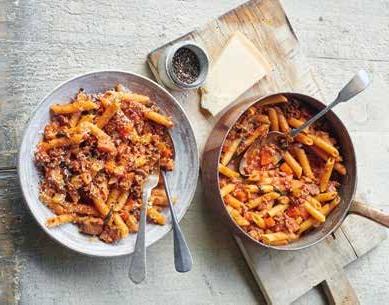
21 minute read
LEGAL
WHY HOLIDAYS ARE IMPORTANT FOR OUR HEALTH
The past year has been incredibly tough and unpredictable, and the uncertainty and constant changes have increased our stress and anxiety levels. Many of us are hoping to take a holiday this summer, whether that is in this country or perhaps abroad. Here is why taking a holiday is so important to our physical and mental health.
Advertisement
Holidays improve our physical
health… Working without breaks creates an imbalance in hormone levels and increases inflammatory processes which weakens the immune system, making you more susceptible to colds, viruses and other illnesses. Giving your body frequent periods of rest prevents poor health and can reduce the chances of serious medical conditions like heart disease, cancer, obesity and diabetes.
Holidays help our mental health…
Overworking and overstimulating our brains makes our neurons more excitable and alert which leads to trouble sleeping, mood swings, short temperedness, and poor memory, focus and confusion. More serious mental health problems can also occur like depression and anxiety. Holidays do the reverse and help us take time to find solutions to problems and to be relaxed in the moment.
Holidays help consolidate and
process memories… and make happy ones…During periods of rest our brains take time to process and sort memories so that we are more prepared for work and normal home life when we get back. Holidays strengthen bonds… Quality time with partners, children, other family members and friends strengthens social bonds. This last year has shown how unpredictable and tough life can be and as pack animals, and how we rely on a strong social infrastructure for support. Spending time with your children also boosts their self-esteem, sense of security and family values.
Holidays decrease burnout… Burnout can influence every aspect of your life from relationships to physical and mental health. One of the main ways to tackle burnout is taking time off to relax. Time off helps to ease feelings of stress and anxiety, alleviating pressure and feelings of burnout.
Holidays help us catch up on sleep…
Holidays allow us to catch up on sleep which is essential for brain function. Whilst we are asleep our brains consolidate information and memories from the day which improves our mental functioning, problem solving, memory and creativity. Studies show that people with depression often have less than six hours sleep per night, meaning they do not have enough deep sleep and REM sleep, which is when the brain is restored. In fact, prolonged time awake can actually result in the loss of a certain type of brain cell known as the locus ceruleus which regulates norepinephrine. The more norepinephrine the less likely we can achieve REM sleep.
Holidays sharpen your mind… Giving your brain a break from the daily activities you undertake at work and at home by doing something new helps establish stronger connections between brain cells which improves the learning process and concentration. Spending more time resting boosts creativity, problem solving skills and also makes us more efficient. Information is also transmitted from one part of the brain to another more effectively, improving recall.
Holidays boost your creativity…
Research has found that the brain gradually stops registering sense stimuli such as sight, sound or feeling if that stimulus remains consistent for long periods. This may cause us to lose focus and diminish performance and creativity. Taking regular breaks and time off helps to prevent this, leaving us more motivated and creative.
Holidays make us more active
especially outdoors… Most of us spend more time outside on our holidays which is hugely beneficial to our health. For example, studies have found that going for a walk outside lowers blood pressure, stress levels, improves focus, helps us heel quicker, slows ageing and simply make us happier! Exercise helps to boost your creativity even more by increasing oxygen flow to the brain. In addition to enjoying it on holidays, incorporate time outdoors into your daily routine, especially if you have a desk job.
Holidays encourage us to try
something new… like open water swimming, a segway, a new type of food, footgolf, a barge trip, an open air cinema or learning about a new culture. Trying new things allows us to expand our minds, learn and step out of our comfort zone which expands our horizons and increases productivity, inspiration and knowledge.

HOW TO CREATE YOUR HAVEN AT HOME
The UK has spent more time at home than normal, and with uncertainty around moving to a new house, Brits have decided to improve rather than move, with many undergoing home improvement projects. In fact, the 2020 Renovation Nation Report stated that spending more time at home inspired 65 per cent of homeowners to invest in renovations to their properties.
Making our home more comfortable, creating a space which we can enjoy all year round has become more important than ever. The 2020 Renovation Nation Report also suggested that the trend for investing in our home is set to continue, as 73 per cent of UK homeowners admit they’ll continue to spend more time at home.
With the home improvement trend set to continue, Eurocell Home, the UK’s leading manufacturer, distributer and recycler of UPVC window and door systems looks at how you can create a stunning living space at home, you won’t want to leave!
Creating an open space
Many homeowners aspire to create a seamless link between the indoor and outdoor space of their homes. Bi-fold doors have become increasingly popular in recent years, they can create a stunning finish to a range of home styles including new builds, modern extensions or period properties. And, with a wide selection of colours and frame sizes to choose from, bi-fold doors can bring your home to life and create a wow-factor!
Bi-folds are perfect for letting natural light flood into the inside living space and can often make smaller homes feel larger, providing you with low-maintenance luxury of modern living.


Increase the floor space
For many, increasing the floor space of your home is highly desirable, whether it be attached to the house, or as a separate space in the garden, there are many different ways to create extra floor space to your home.
Fitting a conservatory is a popular option, as it’s an effective way of increasing the space within your home and creating a statement. Ensure the finish of the conservatory flows with style of your home with perfectly styled doors. French doors are beautifully suited to conservatories and can create an impressive entrance to your garden or a seamless transition through your living space.
A same level extension or lean to is also a good option for increasing floor space, either extended on a kitchen or living room with a large glass frontage, a lean-to extension can create more of an open plan living space.
Home office
A space at home which you can call ‘my office’ is now more important than ever. With many people now working from home, creating a home office can help to separate work and home life.
A desirable home office would include lots of natural light, whether that be from a skylight, patio doors or a big window, natural light can make a huge difference to the working environment. It’s also important to add personal touches to your home office, decorate it to be a style you like, install good lighting and find a way of separating your office from your home life.
Leeds
Second hand furniture and furnishings at an affordable price

• Tables and chairs • Beds and mattresses • White goods • Sofas and suites • Homeware and bric-a-brac • Clothing and shoes • Books and DVDs • Children’s toys
Visit our Secondhand Superstore on St Mary’s Street, Lincoln Green, Leeds, LS9 7DP Opening Times : Tuesday 9:30am - 4:45pm Wednesday - Saturday 9:00am - 4:45pm

Donate your goods! To arrange a FREE furniture collection or to get a quote for a house clearance call 0113 3807847
We're also in Leeds Kirkgate Market, Between Rows F & G, Leeds LS2 7HY
Twitter @EmmausLeeds Instagram @EmmausLeeds Facebook 'Emmaus Leeds'
JAMES MARTIN’S
HIGHLANDS TO ISLANDS
Since going on his Great British Adventure in 2019, James Martin has taken to the road again (and the sea and skies, too!) to bring us more of his favourite stunning recipes.
STEAK WITH WHISKY-BRAISED ONIONS AND MUSTARD SAUCE
Every chef becomes obsessed with certain ingredients at some point in the year and right now, my obsession is onions. These, combined with steak and a simple mustard sauce, were a favourite dish of Johnny on Camera Two when we were filming the show.
SERVES 2
4 onions, peeled 50ml whisky 600ml beef stock 100g salted butter 1 garlic clove, crushed a few pine sprigs, washed and patted dry 1–2 tablespoons olive oil sea salt and freshly ground black pepper 400g rump steak, 5cm thick 150g long-stem broccoli
FOR THE SAUCE
2 tablespoons Scottish grainy mustard ½ teaspoon English mustard 2 tablespoons salted butter 25ml whisky 75ml double cream

If using, light your BBQ. When the coals are silvery in colour, it’s ready to cook on. Place the whole onions in a pan with the whisky and beef stock.
Cover and bring to the boil then reduce the heat slightly and simmer for 40 minutes. Use a slotted spoon to lift the onions out of their cooking liquor and set aside to cool a little. Reserve the liquor. Meanwhile, place the butter, garlic and pine sprigs into a separate pan and place over a low heat to melt the butter. If not cooking on the BBQ, preheat a griddle pan over a high heat. Cut the onions in half horizontally, then drizzle over the oil and season well. Cook on the griddle pan or on the BBQ, flat-side down, for a couple of minutes until charred. Lift onto a plate and set aside. Season the steak all over, then brush with some of the melted pine butter. Cook on the hot griddle pan or on the BBQ for 2 minutes, then brush with more butter, flip over and cook for another 2 minutes. Add the long-stem broccoli to the pan or BBQ for the last 2 minutes of cooking, again brushing with pine butter. Lift the steak onto a boar and rest for 4 minutes.
To make the sauce, put both types of mustard in a pan with 1 tablespoon of the butter and 200ml of the reserved onion cooking liquor. Pour in the whisky, then flambé to burn off the alcohol, tipping the pan gently and carefully to ignite. Place over a medium heat and simmer until the liquid has reduced by half, then stir in the cream and season well. Whisk in the remaining 1 tablespoon of butter to finish. Slice the steak into 3-cm thick slices and place on a platter with the broccoli, then spoon over the sauce. Pull the onions into petals and dot around before serving.
ISLES OF SCILLY POLLOCK WITH A BEAN AND TOMATO STEW
Pollock is deemed the poor man’s haddock or cod, which is sad in a way, as there is plenty of it and it’s a great-tasting fish. Slightly salting it for ten minutes before cooking will firm it up and makes it easier to cook with. I used some of the great sea salt that is produced all around Cornwall for this and created a simple bean and tomato stew to go with it.
SERVES 4
4 x 150-g pollock fillets, skin on sea salt and freshly ground black pepper 50g salted butter
FOR THE STEW
1 tablespoon olive oil 2 garlic cloves, sliced 1 shallot, diced 1 small fennel bulb, half diced and half thinly sliced 12 cherry tomatoes, halved 2 large heritage tomatoes, diced 50g Sunblush sundried tomatoes in oil, chopped 50ml dry white wine 400g can haricot beans, drained small handful of rock samphire small handful of sea beets or baby spinach 15g salted butter Put the fish onto a tray and sprinkle over 2 tablespoons of sea salt. Leave for 10 minutes, then wash off and pat dry. To make the stew, heat a non-stick saucepan over a medium heat. Pour in the oil, then stir in the garlic, shallot and all of the fennel and cook for 2–3 minutes until starting to soften. Add all the tomatoes, along with a spoonful of oil from the sundried tomatoes, and stir everything together. Pour in the wine, bring to the boil, then stir in the beans and cook gently for 10 minutes. To cook the fish, heat a non-stick frying pan over a medium heat until hot, then add the 50g butter. Once the butter is melted and foaming, slide the fish into the pan, flesh-side down. Cook for 2 minutes, then flip over and cook for a further 2 minutes. Season on each side. Finish the stew by stirring through the samphire, sea beets or baby spinach and butter. Taste to check the seasoning, adding more salt and pepper if needed. To serve, spoon the stew onto a large warm platter and top with the fish.

WELSH LAMB RAGOUT WITH PENNE
I genuinely meant it when I said during our filming in the Brecon Beacons that it’s tempting not to bother going abroad on holiday when we have places like this on our doorstep. The scenery around Wales is spectacular, it was one of my favourite locations on the whole trip, and I loved it so much that I have been back there four times since filming.

SERVES 6–8
25g salted butter 3 garlic cloves, chopped 1 onion, diced 2 carrots, diced 1 leek, diced 1 celery stick, diced 300g lamb mince 200g lamb leg, diced into 1-cm cubes 1 tablespoon tomato purée sea salt and freshly ground black pepper 500ml lamb or beef stock 100ml red wine 200g canned chopped tomatoes 2 bay leaves 400g fresh penne pasta large bunch of basil leaves, roughly torn 50g parmesan Heat the butter in a large non-stick saucepan over a medium heat. Once the butter is foaming, stir in the garlic, onion, carrots, leek and celery and cook gently for around 5 minutes until starting to soften. Increase the heat to high, then add all the lamb and cook for 2–3 minutes, stirring everything together and using a wooden spoonto break down the mince. Stir in the tomato purée, season well, then pour in the stock, wine and chopped tomatoes. Give everything a good stir, then tuck the bay leaves into the mixture. Leave to bubble over a high heat for 20–25 minutes, stirring occasionally, until it reduces by around half. Bring a large saucepan of water to the boil, add a good pinch of salt, then add the pasta and cook for 2 minutes. Use a slotted spoon to lift the pasta out of the pan and transfer it to the pan with the sauce.
Cook for a further 2 minutes, then stir in the basil and season.

HEALTH ADVICE FOR MATURE WOMEN
Staying healthy becomes even more important as we get older. When we’re young, we can easily overcome illnesses, falls, and other issues, but as we age these things become more difficult. However, if we take care of our health in the long term, we can ensure that we feel and perform well no matter how old we get. Below, you’ll find the essential health advice mature women should follow in 2021:
Stay Up To Date With Your Healthcare Provider
Start by staying up to date with your healthcare provider. Don’t ignore letters asking you to book an appointment, and don’t ‘worry about making a big deal’ out of any health concerns. Booking a private covid test could be the best thing to give you peace of mind.
Eat A Balanced Diet
A balanced diet should include plenty of color, so fruits and vegetables should be a regular purchase at the supermarket. Balance also means eating a little of what you fancy, however - deprivation is not the key to happiness, and happiness is a must for health, too! Try to make smart choices, but don’t go to extremes. You should enjoy your food.
Stay Active
Exercising can help you to strengthen your muscles and bones, and improve your flexibility and stamina. This can help you to go about your day to day life with ease, as well as reduce your risk of trips and falls. Just find a form of exercise that you really enjoy and you should have no trouble sticking to it. Do something you enjoy, and start slow if you need to. There is plenty of time to build up your sessions and increase intensity if and when you feel ready to do so. Don’t feel under pressure. A gentle yoga session can be just as good for your health as a more intense resistance workout.
Enjoy A Rich Social Life
There is a risk of loneliness as we age and lose touch with our loved ones. This is why it’s so important to put effort into cultivating a rich social life. Join clubs and meet like minded people, and call your friends and family to catch up every so often, even if only for 10 minutes.
Don’t Neglect Sleep
We tend to need less sleep as we age, but this totally depends on how much we naturally need, as well as how active we are. 8 hours usually allows us to perform out best, but it’s up to you to pay attention to how much sleep helps you to feel great. Remember that less than 6 hours is just as bad as none at all, and it can even mean a shorter lifespan.
Keep Your Brain Active
Keeping your brain active is one of the most important things you can do later in life, too. Doing puzzles, reading, and learning new things can all help you to keep your brain and body healthy. You’re never too old to learn something new, and keeping your brain sharp will ensure you stay healthier for longer.
How to clear your brain fog
Many of us have been talking about brain fog of late, whether that is because of ageing, feeling burnout, recovering from illness, or juggling too many balls in the air during this incredibly difficult last year. So what is brain fog and how does it relate to memory and what exactly can we do about it?
What is brain fog?
Brain fog can range from mild to severe and is associated with poor memory, not being able to focus clearly, not being able to retrieve information and a lack of clear thinking and can negatively affect all aspects of our lives. Brain fog can be most apparent when we struggle with our memory and our ability to acquire, store, maintain and reclaim information that we have previously experienced or learned.
A review by Theoharides et al (2015) discusses evidence that suggests stress, exposure to certain toxins and medical health problems causes inflammation of certain molecules in the brain which can contribute to brain fog. Even lack of sleep and nutritional deficiencies can add to the problem. So, what can we do to help ourselves?
How to clear brain fog, sharpen our thinking & improve our memory
Make sleep your top priority. On average, a person goes through 3-5 REM (rapid eye movement) cycles per night which is when we dream and is vital for mental and emotional regulation. It is important to maintain a regular and healthy sleeping pattern in order to prevent or clear brain fog and to be at your sharpest and allow your brain to do all its sorting and coding.
Exercise to get the oxygen flowing.
Exercising increases oxygen and blood flow, so incorporate 30 mins of exercise into your daily routine to help clear out the cobwebs especially if you can get outside.
Don’t overload. Take time to properly focus on activities and avoid trying to do too many things at once. The misguided notion of multitasking has been linked to poorer episodic memory, along with a reduction in efficiency, performance and focus. Slow down and do one thing at a time.
Brain fog could be hormonal. Low levels of hormones, particularly oestrogen, have been linked to changes in memory and difficulties thinking or processing information. These disturbances most frequently occur during the menopause. Check medications. Some over the counter medications can cause brain fog so check the label for side effects. Chemotherapy can prevent the production of oestrogen which may explain changes in memory otherwise known as ‘chemo brain’, which is another type of brain fog.
Consult a medical professional if you think depression, sleep disorders, anxiety or medication you are taking could be contributing to the brain fog.
Reduce stress. Most importantly if you are feeling overwhelmed, remember to be kind to yourself. Have downtime, work out what you need to feel better that can be realistically achieved and surround yourself with positive people.
ONCE THE FOG HAS CLEARED, IMPROVE YOUR MEMORY BY:-
Activating as many senses as you can. Sensory memories are fleeting, and we are not often aware of them. But stimulating the senses can help us feel better which encourages us to continue that activity thus bringing it into our conscious awareness, enjoying the process and develop long term memories.
Using mnemonic tools such as using as a phrase, acronym, song, rhyme or image to help remember a list of facts in a certain order.
Learning something new that you enjoy. Novelty is a sure fire way to get our attention. So think of something you haven’t done before, try it and if you enjoy it keep going. The neural plasticity of the brain is incredible and you will lay down new connections and pathways and have fun at the same time.
Attaching meaning to what you want to remember. If you are bad with names or dates attach a meaning by associating it with something familiar. This link provides a stronger association in your brain, increasing the likelihood of you remembering it next time.
Repetition. Intentionally repeating something that you would like to recall in the future is one of the oldest tricks in the book – but it works. Repetition will encode information beyond your sensory and short-term memory, into your long-term memory.
MANAGING ANXIETY COMING OUT OF LOCKDOWN
During the pandemic we have all coped in different ways; some of us have adjusted more easily whilst others have had to deal with pain and hardship, or with feelings of burnout or isolation. Whilst people who have had to shield may understandably need time to adjust to coming out of lockdown, many of us may be feeling anxiety for a variety of reasons. Now as we are slowly opening up the world again it is important to ensure that we are best equipped for what may still be a series of uncertainties and ups and downs.
Here are some tips that may help:-
Take your time – Before getting up each day perhaps listen to the birds or practise gratitude for a few minutes and make happiness and health a daily choice. Going forwards in the weeks ahead, try to avoid rushing big decisions, prioritise what needs to be acted upon first, take your time to get it right, avoid comparing yourself with others.
Positive thinking - Facing challenges head on and realistically whilst thinking positively helps to move forwards and build resilience. Research shows that those who face adversity with a positive mindset deal with stress and problems better and have a better health outcome long term. Avoid the traps of negative thinking and swap in more positive language. Re-examine negative situations from a different angle and try to find a workable solution.
Ensure you live a healthy lifestyle
including regular physical exercise, a good sleeping pattern, low stress and a healthy diet. Focus on things you can control.
Be safely social and inclusive - Follow the rules but remain sociable where possible, even if that means keeping events virtual. Through brain imaging, scientists have found that when people experience social exclusion and social distress some areas of the brain are similarly activated as if they were experiencing physical pain.
Work out your new priorities – The pandemic has made many revaluate their priorities, leading people to ask themselves what truly makes them happy. Are you happy at work and in your relationship? Are you happy in your own skin? Set some goals for yourself which you feel will make you happier and revisit them once a month to track your progress. They could be anything from exercising, to getting in touch with old friends to getting a promotion.
Be careful of burnout - Identify the signs early. Signs of burnout include fatigue, irritability, sleepless nights despite feelings of exhaustion, anxiety and physiological changes in your body like raised blood pressure. Ensure you aren’t consumed by your old life once restrictions lift and that you use what you learnt in lockdown including perhaps slowing down.









